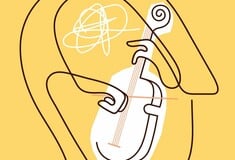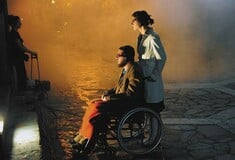Είμαι καλός; Είμαι κακός; δεν ξέρω...
WALLACE: Do you believe man to be by nature good? In studying our fabulous displays of corruption and greed and fear and racism, how do you remain so patently optimistic?
CHOMSKY: I presume that each of us has the capacity to be a saint or a monster. The rest is up to us, although the circumstances of our lives impose complex conditions on such choices. As for being optimistic, it doesn't seem to me much of an issue. We can decide that there's no hope so we might as well give up and help assure that the worst will happen, or we can grasp what hopes there are, and they surely exist, and may be able to contribute to a better world.
WALLACE: I gather that there is disagreement whether the development of language, evolutionarily speaking, was as a way to speak to oneself, so as to better make sense of one's own experience, or as a way to communicate to another. What is your feeling?
CHOMSKY: I think there is strong and mounting evidence to support the traditional view, that language is primarily an instrument of thought, secondarily used for a variety of instrumental purposes, among them communication.
WALLACE: Which makes me wonder, is there an evolutionary purpose for creativity?
CHOMSKY: Evolution doesn't have purposes. People do. One purpose, I think, should be to allow for the fullest development of what I assume is a core part of human nature, the need to be free to think, to create, to develop and employ one's capacities and interests and to do so in relations of mutual support with others, both enjoying their freedom and contributing to it.
__________
Ο Νόαμ Τσόμσκι μιλά στον αρχισυντάκτη του Interview, για το τεύχος που κυκλοφορεί





























σχόλια